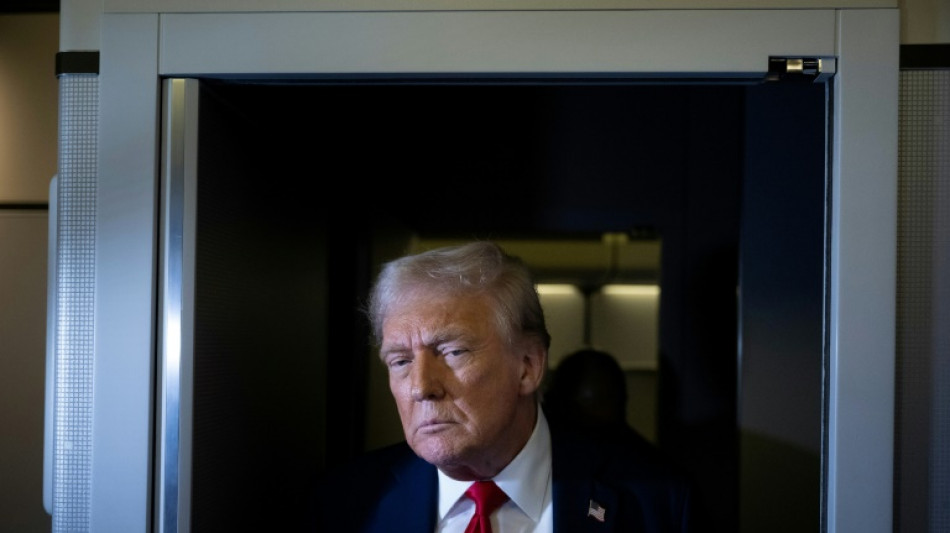
-
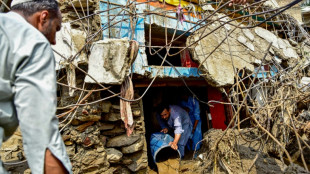 Pakistan rescuers recover bodies after monsoon rains kill 340
Pakistan rescuers recover bodies after monsoon rains kill 340
-
Hurricane Erin intensifies to category 3 storm as it nears Caribbean
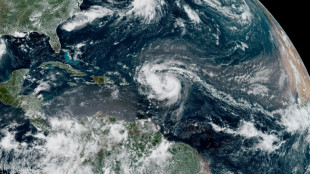
-
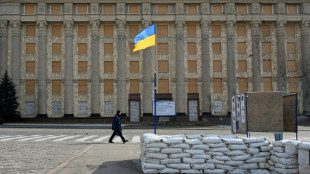 Ukrainians see 'nothing' good from Trump-Putin meeting
Ukrainians see 'nothing' good from Trump-Putin meeting
-
Pakistan rescuers recover bodies after monsoon rains kill 320

-
 Bob Simpson: Australian cricket captain and influential coach
Bob Simpson: Australian cricket captain and influential coach
-
Air Canada flight attendants strike over pay, shutting down service
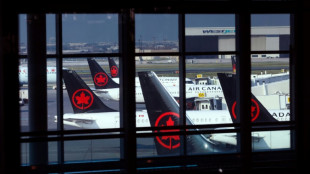
-
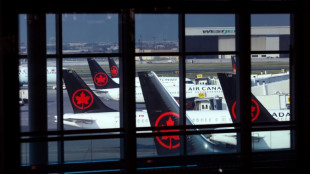 Air Canada set to shut down over flight attendants strike
Air Canada set to shut down over flight attendants strike
-
Sabalenka and Gauff crash out in Cincinnati as Alcaraz survives to reach semis

-
 Majority of Americans think alcohol bad for health: poll
Majority of Americans think alcohol bad for health: poll
-
Hurricane Erin intensifies in Atlantic, eyes Caribbean
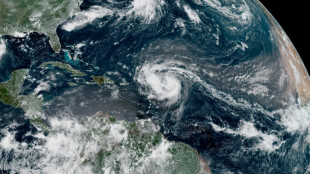
-
 Louisiana sues Roblox game platform over child safety
Louisiana sues Roblox game platform over child safety
-
Trump and Putin end summit without Ukraine deal
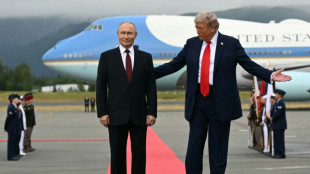
-
 Kildunne confident Women's Rugby World Cup 'heartbreak' can inspire England to glory
Kildunne confident Women's Rugby World Cup 'heartbreak' can inspire England to glory
-
Arsenal 'digging for gold' as title bid starts at new-look Man Utd

-
 El Salvador to jail gang suspects without trial until 2027
El Salvador to jail gang suspects without trial until 2027
-
Alcaraz survives to reach Cincy semis as Rybakina topples No. 1 Sabalenka

-
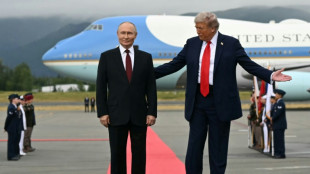 Trump, Putin cite progress but no Ukraine deal at summit
Trump, Putin cite progress but no Ukraine deal at summit
-
Trump hails Putin summit but no specifics on Ukraine
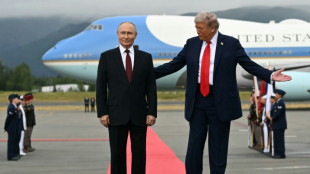
-
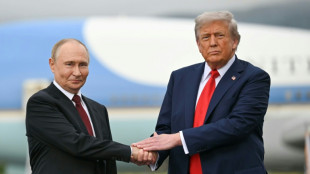 Trump, Putin wrap up high-stakes Ukraine talks
Trump, Putin wrap up high-stakes Ukraine talks
-
El Salvador extends detention of suspected gang members
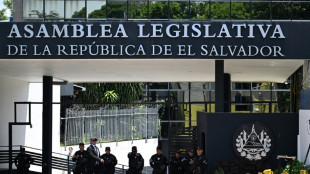
-
 Scotland's MacIntyre fires 64 to stay atop BMW Championship
Scotland's MacIntyre fires 64 to stay atop BMW Championship
-
Colombia's Munoz fires 59 to grab LIV Golf Indy lead

-
 Alcaraz survives Rublev to reach Cincy semis as Rybakina topples No. 1 Sabalenka
Alcaraz survives Rublev to reach Cincy semis as Rybakina topples No. 1 Sabalenka
-
Trump offers warm welcome to Putin at high-stakes summit
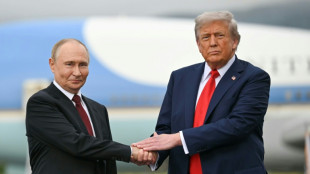
-
 Semenyo racist abuse at Liverpool shocks Bournemouth captain Smith
Semenyo racist abuse at Liverpool shocks Bournemouth captain Smith
-
After repeated explosions, new test for Musk's megarocket
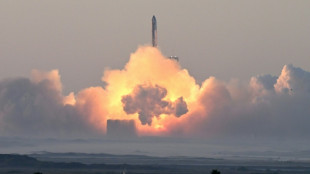
-
 Liverpool strike late to beat Bournemouth as Jota remembered in Premier League opener
Liverpool strike late to beat Bournemouth as Jota remembered in Premier League opener
-
Messi expected to return for Miami against Galaxy

-
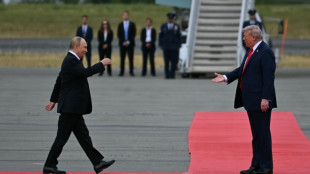 Made-for-TV pageantry as Trump brings Putin in from cold
Made-for-TV pageantry as Trump brings Putin in from cold
-
Coman bids farewell to Bayern before move to Saudi side Al Nassr

-
 Vietnamese rice grower helps tackle Cuba's food shortage
Vietnamese rice grower helps tackle Cuba's food shortage
-
Trump, Putin shake hands at start of Alaska summit
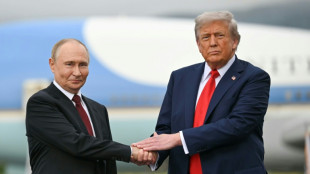
-
 Coman bids farewell to Bayern ahead of Saudi transfer
Coman bids farewell to Bayern ahead of Saudi transfer
-
Liverpool honour Jota in emotional Premier League curtain-raiser
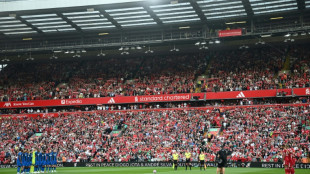
-
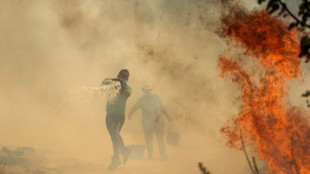 Portugal wildfires claim first victim, as Spain on wildfire alert
Portugal wildfires claim first victim, as Spain on wildfire alert
-
Davos founder Schwab cleared of misconduct by WEF probe
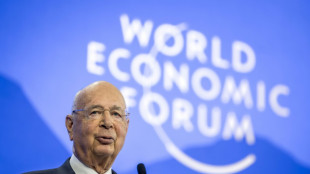
-
 Rybakina rips No.1 Sabalenka to book Cincinnati semi with Swiatek
Rybakina rips No.1 Sabalenka to book Cincinnati semi with Swiatek
-
Trump lands in Alaska for summit with Putin
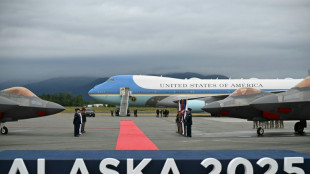
-
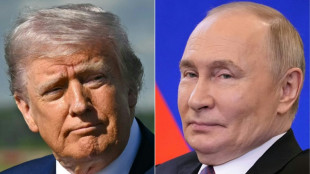 Falsehoods swirl around Trump-Putin summit
Falsehoods swirl around Trump-Putin summit
-
US retail sales rise amid limited consumer tariff hit so far
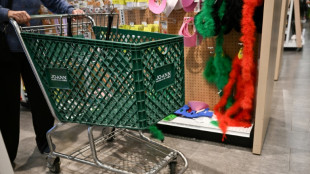
-
 Liverpool sign Parma teenager Leoni
Liverpool sign Parma teenager Leoni
-
Canadian football teams will hit the road for 2026 World Cup

-
 Bethell to become England's youngest cricket captain against Ireland
Bethell to become England's youngest cricket captain against Ireland
-
Marc Marquez seeks elusive first win in Austria
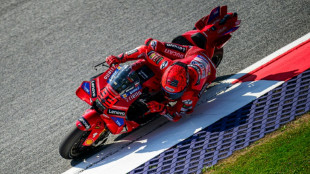
-
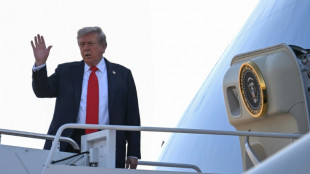 Trump, Putin head for high-stakes Alaska summit
Trump, Putin head for high-stakes Alaska summit
-
Brazil court to rule from Sept 2 in Bolsonaro coup trial

-
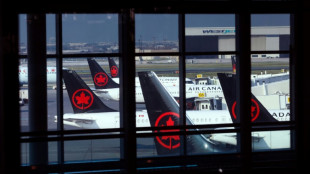 Deadline looms to avert Air Canada strike
Deadline looms to avert Air Canada strike
-
Spain on heat alert and 'very high to extreme' fire risk
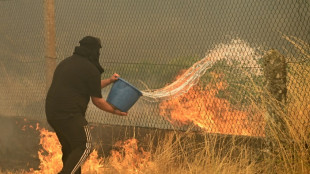
-
 Taliban mark fourth year in power in Afghanistan
Taliban mark fourth year in power in Afghanistan
-
Grand Slam Track won't happen in 2026 till athletes paid for 2025


Tariffs: Economic 'liberation' or straitjacket?
US President Donald Trump has made tariffs a cornerstone of his trade policy, insisting that they will revive American manufacturing while swelling government coffers.
Critics argue that the levies will boost inflation in the near term and weigh on growth, triggering a trade war that could inflict serious damage on the United States and the wider global economy.
Trump has imposed tariffs on major trading partners Canada, Mexico and China since returning to the presidency while slapping fresh duties on steel and aluminum imports, with more to come on what he dubbed "Liberation Day" this Wednesday.
- What are tariffs? -
Tariffs are fees that importing businesses pay for their purchases of foreign goods.
When tariffs are imposed, companies must choose between forking out more for foreign goods -- and potentially passing those costs on to consumers -- or looking for alternatives.
The levies bring in revenue for governments imposing them and are commonly used to protect local companies and workers from competition abroad.
The charges can make domestic goods more cost-competitive, encouraging buyers to select local producers instead.
- Arguments for -
Trump's position is that with tariffs on key imports, companies will move more manufacturing to the United States -- or buy US-made products -- to avoid additional fees.
A commonly-used example is the "chicken tax" of the 1960s, when president Lyndon Johnson pushed back against European tariffs on American poultry with a levy on imported trucks.
Today, a 25 percent US tariff remains on light trucks and this is a key reason that most pick-up trucks sold in the country are built in North America.
The White House says new tariffs could also bring in more than $6 trillion in federal revenue over the next decade -- about $600 billion per year -- although it has yet to release its full plans.
While US-based companies generally pay the tariffs, White House officials have argued that foreign sellers would absorb the hike by lowering their prices as they seek to do business with the world's biggest economy.
Supporters of Trump's trade policy also say that tariffs did not cause widespread inflation during his first White House term.
- Arguments against -
But economists warn that tariff hikes can bring economic pain to affected sectors, and Trump's stop-start approach to announcing levies has sent financial markets tumbling.
If companies are unable to absorb additional fees and foreign sellers decline to lower their prices, the burden of tariffs could flow to other firms or consumers.
Trump's 25 percent tariffs on autos and parts could cause the price of a typical car to surge by $5,000 to $10,000, said Wedbush analysts.
Even US automakers producing cars in the country use up to 50 percent of foreign auto parts, they said.
"It would take three years to move 10 percent of the auto supply chain to the US and cost hundreds of billions with much complexity and disruption," Wedbush added.
Nationwide chief economist Kathy Bostjancic estimates that recent tariffs on Chinese goods, alongside steel and aluminum imports, would raise construction material prices by up to nine percent.
Prices of appliances could also surge up to 15 percent, she said.
Trump's tariffs attract retaliation too, and countermeasures triggered more than $27 billion in US agricultural export losses from mid-2018 to late-2019.
The Tax Foundation said: "Based on actual revenue collections data, trade war tariffs have directly increased tax collections by $200 to $300 annually per US household, on average."
These estimates do not account for "lower incomes as tariffs shrink output, nor the loss in consumer choice" as buyers seek tariff-free alternatives, it added.
E.Qaddoumi--SF-PST
